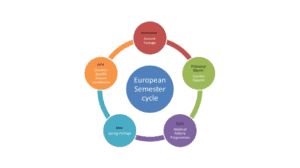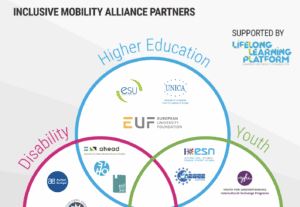Bilingualism as a basic human right for deaf children in education
PRESS RELEASE – Bilingual education is the only way for deaf children to gain equal opportunities and allowing them to become full citizens in their own right. This was the final conclusion from the sign language conference in Ål, Norway, organised jointly by the World Federation of the Deaf (WFD), the European Union of the Deaf (EUD), and Ål Experiential College.
Becoming bilingual in the national sign language and the written language of one’s country of residence is a fundamental right for deaf children. National sign languages are the mother tongues of deaf people and the only language they can acquire fully and effortlessly. To function in society it is essential for deaf children to become proficient in the respective (written) language of the country. Therefore, meaningful bilingualism must be ensured in education as early as possible and throughout the course of the whole educational path, including Lifelong Learning programmes.
WFD and EUD strongly urge stakeholders in education to take under consideration the unique needs of deaf children by supporting their sign language acquisition as well as the learning of the national (written) language. WFD and EUD call upon national and regional governments to take under consideration the Brussels Declaration of 19 November 2010, which postulates the rights of Deaf and Hard of Hearing sign language users to learn a sign language and learn and study bilingually. Considering that the Declaration was included in the European Parliament report on the Mobility of Persons with Disabilities, which was adopted by the European Parliament on 25 October 2011, WFD and EUD request policymakers to take positive action to ensure deaf children can become fully bilingual and therefore full and equal citizens.
The international conference in Ål, which brought together stakeholders from the Deaf Community, academia, and the educational sector, underlines these demands. Dr Hauser from the Rochester Institute of Technology (USA) presented research showing that there is no evidence learning a sign language interfered with the learning of a second language.
WFD and EUD are concerned that the recognition of sign languages does not have the desired effect in practice. The Finnish government has recognised sign language at constitutional level but as the Director of the Development Department of the Finnish Association of the Deaf pointed out, “the legal obligation does not necessarily guarantee the realisation of linguistic rights in practice”.
WFD and EUD therefore call upon policymakers and national as well as regional stakeholders to not only legally recognise the national sign languages of the world but also ensure that in practice deaf children are educated in a bilingual environment, facilitating the acquisition of the national sign language and Deaf culture.
The PDF version of the press release can be found here.
For further information please contact:
World Federation of the Deaf
Ms Heidi Maria Helenius, WFD Liaison Officer +358 50 4388 370, www.wfdeaf.org
Europese Unie van Doven
Mr Lars Knudsen, EUD Communication & Media Officer, [email protected], www.eud.eu












